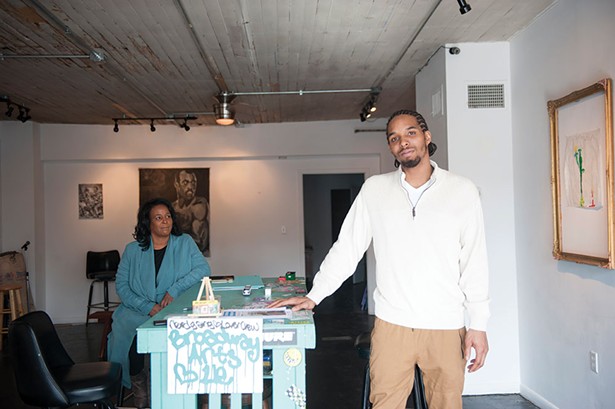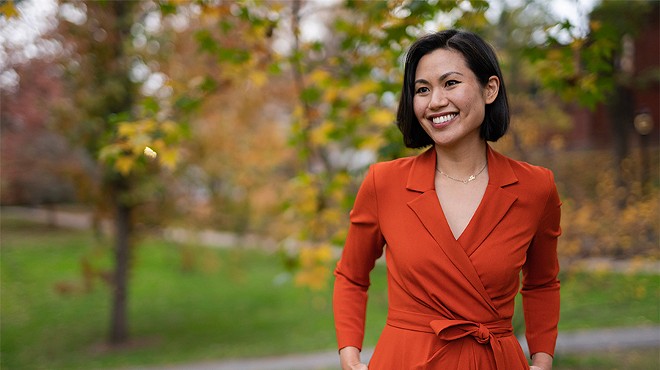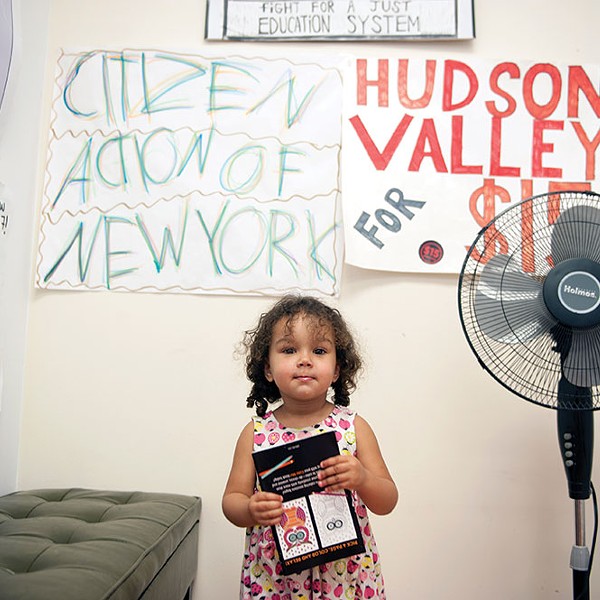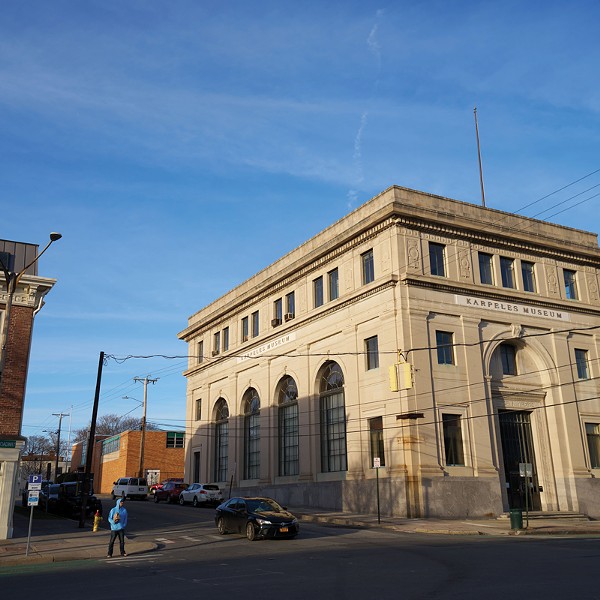In March 2012, Newburgh police officers shot 22-year-old Michael Lembhard nine times in his family’s living room. Lembhard was wanted for not reporting to court on a domestic violence charge, and when they went to apprehend him, police said he lunged at them with a kitchen knife. Michael Sussman, the family’s lawyer, said 20 shots were fired. Bullet holes were found in the walls, floor, and sofa.
Lembhard was one of six men killed by Newburgh police between 2006 and 2012, and the deaths sparked a series of protests in the city. Crying, Cherry Lembhard interrupted a press conference to accuse Police Chief Michael Ferrara and the NPD of murdering her brother; during meetings, angry relatives and friends demanded outside investigators. A grand jury cleared the officers of any wrongdoing in the death of Lembhard, and the Newburgh City Council narrowly approved an $81,378 settlement for the family in 2016.
Between 2003 and 2009, more than 4,800 deaths were reported to the Bureau of Justice Statistics' Arrest-Related Deaths program. Of those, 61 percent were classified as homicide by law enforcement personnel. The small cities and towns of the Hudson Valley are not immune to problems of excessive use of force by law enforcement. Some communities are, in certain respects, a window into the national issue. Through conversations sparked by the Black Lives Matter movement, and concern around the Trump administration's support for policing tactics that target immigrants and communities of color, the issue is being pushed to what many hope will be a tipping point.
Discussions of policing often reveal deep divisions between civilians and law enforcement, especially in communities of color. Community activists point to racial profiling police practices and news blotter reporting in the media, which both disproportionately target and present people of color as being inherently threatening. For law enforcement advocates, the dangers of being first responders causes intense stress and ill health effects. Around 2006, Newburgh led the state in violent crimes per capita, and gang violence was the culprit for all but two or three of the city's 16 homicides. According to a 2010 New York Times article, "By law enforcement estimates, gang members with national affiliations outnumber the city's police by a ratio of three to one, not counting the hundreds of young people in homegrown groups." Fear was rampant among police officers and residents.
FOILed Again
Omari Shakur now lives in the apartment where Michael Lembhard was killed. Sixty-two years old, he's father to 12, grandfather to 28, with one great-grandchild and one on the way. He's lived in Newburgh his whole life. An activist with the Nu-Poets, Shakur began to question and film police officers during arrests that he witnessed, which resulted in Shakur's own arrest three times. Shakur fought those charges and was ultimately found not guilty, but he believes there was retaliation for his criticism of police. In October 2006, 14 days after Shakur filed federal suits against the department for those arrests, his 23-year-old son was shot in the back of the head by a City of Newburgh police officer during what police described to the press as a shootout.
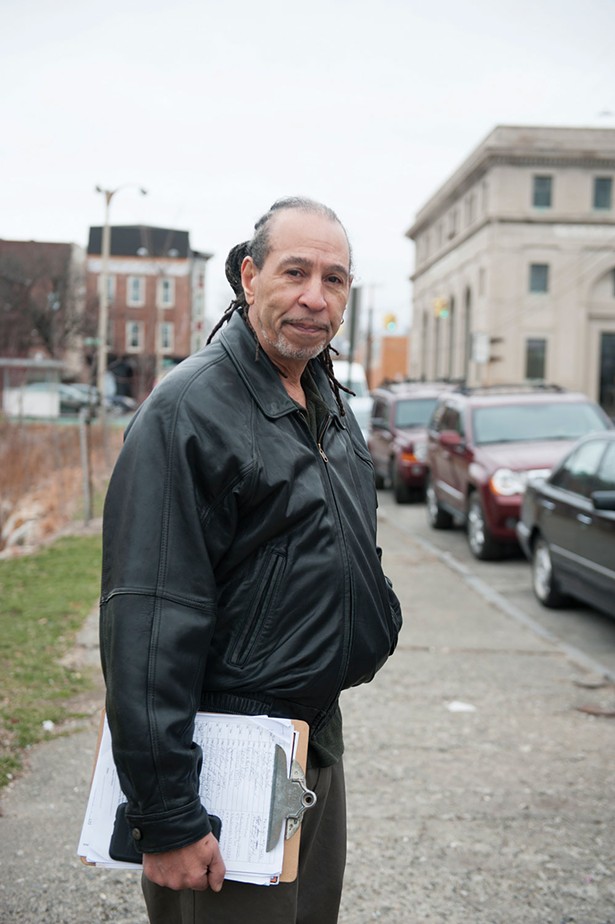
"Over the past few years, our nation has seen tragic cases, captured on video by bystanders and police, but this has been going on for years," says Shannon Wong, the Lower Hudson Valley chapter director of the New York Civil Liberties Union (NYCLU), a state affiliate of the ACLU, which has a history of monitoring and receiving police complaints and working on criminal justice reform. "The reality is that communities of color have historically been oppressed by police departments."
In a 2017 study, the NYCLU asked New York police departments for information on their policies, trainings on cultural competency, language access, and de-escalation techniques, all of which must be disclosed in response to a FOIL (Freedom of Information Law) request. The three Hudson Valley municipalities examined—Newburgh, White Plains, and Mount Vernon—did not respond to the FOIL request within the legal deadline. Newburgh took 23 months from the initial request to complete it, and then the NYCLU received heavily redacted documents, which they ultimately deciphered as irrelevant to their request.
The NYCLU wants to see the Police Statistics and Transparency (STAT) Act passed. STAT requires uniform data collection and reporting on arrests and deaths in custody, including the race, ethnicity, age, and gender of people who are charged with violations and misdemeanors, plus reporting on the geographic location of enforcement activity. According to Wong, STAT is unlikely to pass anytime soon. "It looks like, statewide, there is momentum on bail reform, which will mean, for now, police transparency is not on the top of everyone's mind," Wong says.
Newburgh's Rise
On the sixth anniversary of Lembhard's death, the annual memorial held by the community—a balloon release at Washington's Headquarters—was postponed because of a snowstorm. The week before, Shakur had been honored by the NAACP. The week after, he was honored by Newburgh's City Council. But that week, he attended the funeral of Lembhard's father, who had been in a mostly vegetative state since his son's death. "That could have been me," Shakur sighs. "Lemdhard lost his will to live when he lost his son."
Shakur always carries voter registration paperwork on a clipboard, in the hopes of raising Newburgh's voter turnout rate. He estimates he's helped over 3,000 people register. That's one reason people say Shakur is the unofficial Mayor of Newburgh. In fact, Shakur has run for both mayor in 2011 and Orange County Legislature in 2017, with narrow losses. Shakur grew up going to City Council meetings with his mother, a former Black Panther. When his son was killed, he thought, "If it's a choice between vengeance or justice, I want justice."

Newburgh's police chief retired in 2013, and the city has been without one since. Shakur worked to create a relationship with Acting Chief Daniel Cameron. They had each other's cell phone numbers, and Shakur says they had an understanding that they wanted to work together to solve issues of gang violence, drugs, and police shootings. When he ran for mayor, Shakur's platform was for increased job training and employment opportunities for young people. Shakur thinks that rather than putting people in jail for $70,000 a year, Newburgh should give them jobs. "Somehow, we have turned Newburgh into a warehouse for the prison system," Shakur says. "We gotta take the business out of poverty."
But Shakur is optimistic. He says that as a result of the misery and violence that's happened, the city has become closer. "Newburgh's at a turning point right now. We're trying to rise, we've just got a couple things to put in place." Like getting a permanent police chief. In February, Doug Solomon was sworn in as Newburgh's provisional police chief, pending an upcoming exam. Solomon has said he wants to build on the city's initiatives—the Group Violence Intervention program and the Youth Police Academy.
A Tasing in Kingston
Growing up, Fabian Marshall split his time between Woodstock and Kingston. In 2015, he was living in Midtown, near his mother's art gallery, Broadway Arts. He wanted to be part of the rap scene and near his girlfriend, and he was working at a restaurant. According to Marshall, he sometimes gets stopped by the police when they are looking for a black suspect. "In Woodstock, there were like a total of five black people," Marshall says, so he could understand why he, one of the only black people, was frequently questioned during police investigations. Usually, a conversation would clear up his involvement or lack thereof.One day in Kingston, while waiting for a ride to work, he was approached by Police Officer Jeremy Arciello, who was investigating an argument that happened earlier that day when a black man in red shorts pushed someone off a bicycle. By the end of their interaction, Marshall was handcuffed, tased multiple times, and arrested.
In a video from Marshall's cellphone and KPD-released dashcam footage, which was edited together by Citizen Action of the Hudson Valley, Officer Arciello is seen accusing Marshall as he approaches him. The situation escalates quickly when Marshall asks for clarification of what Arciello is investigating. When Marshall starts to film their interaction on the phone he's holding, Arciello handcuffs him and is seen smashing the phone into the pavement. It keeps recording Marshall's screams as he is tased, by Citizen Action's count, 21 times. Marshall wasn't counting, but he says he had at least 16 taser holes in his legs afterward. At the end of the video, officers are heard telling each other to get rid of the phone, and the incident prompted a question from community members: Even if he had pushed someone off a bicycle (which Marshall was cleared of any involvement in), is multiple tasing warranted?
New York State has a three-tase limit, but officers have the discretion to go over that limit and use whatever other tools are necessary to gain compliance. New in Kingston this year is the acquisition of bodycams. Though the city is still determining logistics of collecting and reviewing all the video collected, each shift supervisor will be required to randomly audit patrol footage.
According to the website of Campaign ZERO, a police reform campaign proposed by activists associated with Black Lives Matter, "Police usually investigate and decide what, if any, consequences their fellow officers should face in cases of police misconduct. Under this system, fewer than 1 in every 12 complaints of police misconduct nationwide results in some kind of disciplinary action against the officer(s) responsible."
A new policy put in place by Kingston's Mayor Steve Noble says that, now, when any use of force is deployed by KPD, it's automatically investigated by the Police Commission. (Kingston is one of the only cities in the Hudson Valley with one.) The board of four civilians and the mayor has regulatory authority and the ability to make policy.
One policy the Police Cosmmission and mayor are interested in passing is the Right to Know Act (RTKA)—an NYCLU initiative to train officers to introduce themselves, end stops that don't end in arrest with a business card, and ultimately allow civilians to ask officers questions during a stop. A draft of the resolution based on Albany's model is making its way through the Kingston Police Commission and Common Council this month. Albany was the first municipality in the state to pass an RTKA, and Noble hopes Kingston will be the second.
This year, racial justice activists have begun to file complaints on older incidents in an effort to raise awareness about the KPD's use of force and to advocate for increased transparency in the Police Commission's processes. They're frustrated with the practice of reviewing complaints in executive session. Because of Section 50-A of state civil service law, the identity of civil service workers, like police officers, is protected during any job performance review. That's currently being challenged through litigation by the NYCLU because it prevents disciplinary actions and the identity of abusive officers from being publicly available.
Effectively, it also means that citizens who make complaints feel harassed and targeted through the process. During Marshall's complaint, he was taken into a conference room without his lawyer, with one witness and two advocates, and questioned by the City of Kingston's lawyer and the Police Commissioners.
Marshall says making his complaint was a hopeful gesture. For the past three years, Marshall has gone to court dates, trial, paid legal fees, and is now appealing a conviction of obstruction of governmental administration. He lost his job, was fingerprinted and swabbed for DNA, and has to do a year of what's akin to probation. "Now I'm in the system," Marshall says.
At the time of this story's writing, Kingston was awaiting the Police Commission's decision on Marshall's complaint, to either find the use of force against Marshall justified or to recommend the officer receive disciplinary action. Marshall hopes for the latter and says, "I need a win somewhere here."
Building Trust
Over the past three years, there have been 12 police forums in the City of Kingston, where Chief Egidio Tinti and two different mayors sat down with the community to discuss policing issues. One of the issues often discussed is the length of time it takes to review complaints and video evidence. At a forum in November, the reason given was that people's jobs were on the line. A mother retorted, "My son's life is on the line.""In order to have community, we need to be able to have dialogue," says Mayor Noble. "In the end, we have to start to trust each other. And I think building trust is hard." Part of that effort is to bolster community policing—the practice of fostering connection between police and the community. Chief Tinti says that over the years, police have gotten away from the walking beat because of an increased call volume. Kingston receives 26,000 calls for service each year. KPD also developed a COP (community-oriented policing) position, where one unit each shift is on foot or bicycle, and also attends community events. But at the last two policing forums, members of the black community invited KPD to the local community centers for kids' activities because they haven't seen COP units there.
"I don't think there's any apprehension on discussing the hard topics," says Chief Tinti. "Whether it's body cameras, transparency, accountability, or the use of force that the officers are trained in, the discussion of implicit bias and racism in law enforcement—I think those are all good topics that we need to have hard talks about. At this point, whether or not there's trust across the table, I think there are lines of communication that are open now that weren't open before."
As for Marshall, he doesn't visit Kingston very often anymore. He moved to Catskill where he finds it peaceful. He likes to swim and hike. "The community isn't trained in how to deal with a hostile police officer coming up to you," Marshall says. "It's not all police officers, but you can't make an excuse for one; all of them have to be accountable."







